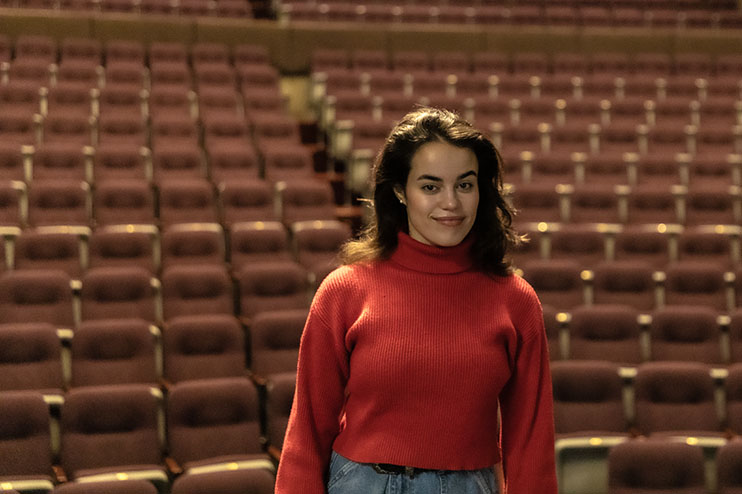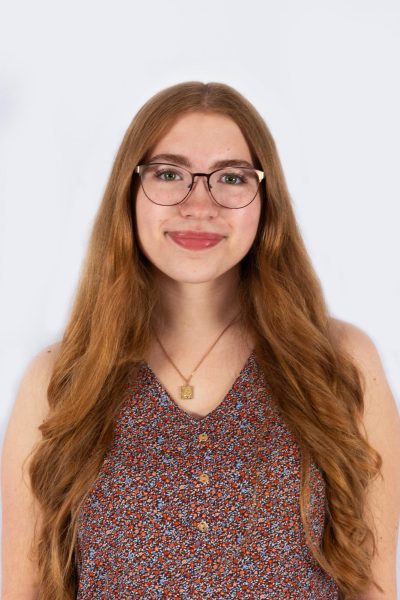Editor’s Note: This is a guest commentary. The opinions do not necessarily reflect the views of the editorial board.
The first time I went to the opera, everything sounded the same to me: loud, orchestral music with singers who used copious amounts of vibrato. The most interesting part was watching two college-aged students in front of me, discreetly — illegally — film the entire show. How could anyone care that much about opera? I could understand wanting to film a musical. I had always been a huge fan of musical theater. I watched every “Waitress Slime Tutorial” out there, and I still know just about every word of “Hamilton.” I was — and still am — in awe of what musical theater performers can accomplish.
Opera finally caught my attention when I realized how skilled the performers have to be, like in musical theater. Both art forms are very similar, but opera lives in this world where the characters must express a single emotion, a single moment, entirely in music. Opera challenges its performers to constantly connect to the music and discover what each measure means to their character. Performers of many different skill sets are up for this challenge and could revitalize the opera industry.
Ithaca College alumnus Zachary James recently won a Grammy in 2022 for Best Opera Recording. However, he didn’t study vocal performance at Ithaca College. He graduated with a degree in Musical Theatre, going on to originate the role of Lurch in The Addams Family musical. With various Broadway credits under his belt, he also took to opera. He has performed in opera houses around the world, and even founded Opera Ithaca in 2014 with fellow Ithaca College alumnus Lynn Craver.
James is a perfect example of what musical theater performers can also accomplish in the world of opera. There is such a need for versatile performers and we have many of them at Ithaca College.
I believe that students in the School of Music, Theatre, and Dance can work together to build a vibrant opera community at the college. Now that the departments have merged into the MTD program, it’s time for more collaboration between the Whalen Center for Music and the Dillingham Center for Theatre and Dance.
As a Whalen student, I could strongly benefit from the acting and movement technique Dilingham students learn. I was privileged to watch junior Walker Risser’s hilarious, meticulous performance as a featured ensemble member in “The Pirates of Penzance” last February. Observing Risser’s character choices and use of movement helped me to better understand how to make suitable acting choices within my own work. I have also heard from many Dilingham students how they would love to be a part of vocal ensembles on campus, such as Chorus or Treble Chorale. Their singing and ensemble skills would be strengthened through these classes.
The college’s next opera, “Le Dernier Sorcier,” running March 1 to 6, will showcase some Whalen/Dillingham collaboration. Faculty members and students from both Whalen and Dillingham will be involved in the production, creating a unique performance environment. I will be taking on the role of Stella, opposite sophomore musical theater major Wyatt McDaniel’s Lelio.
For Stella, I plan on using a variety of performance skills, including what I’ve learned from the college’s Opera Studio Program. Most of my education has involved singing rather than acting or movement. This program, founded by Dawn Pierce, associate professor of Music Performance and Voice, gave me the opportunity to learn how to use movement and acting to strengthen my singing. This is where I found my love for opera and felt how exciting it was to drop into this highly dramatic world. Opera Studio’s master director Chuck Hudson has trained and worked as a Shakespearean actor, mime and stage director. He uses these disciplines to help performers strengthen skills that they aren’t traditionally taught. He has helped me focus on movement and awareness of space, guiding me to a higher level of performance. This program taught me how exciting the operatic stage can be when you challenge yourself to build skills and make discoveries every day.
If every performer challenges themselves to make discoveries through other disciplines, opera achieves a dramatic effect like no other art form. Each artist can bring their own expertise to the table, creating a collective experience for the production to draw upon.
Your experience is necessary to the advancement of opera, whether you’re trained in musical theater, Shakespeare or rock and roll. Performers from various backgrounds are what makes opera exciting to watch and participate in. As long as each and every member of the company is willing to commit to the challenge of opera with their own skill sets and strengthen new skills, opera will change for the better.
Emma Commisso (she/her) is a senior vocal performance and music education major. Contact her at [email protected].















